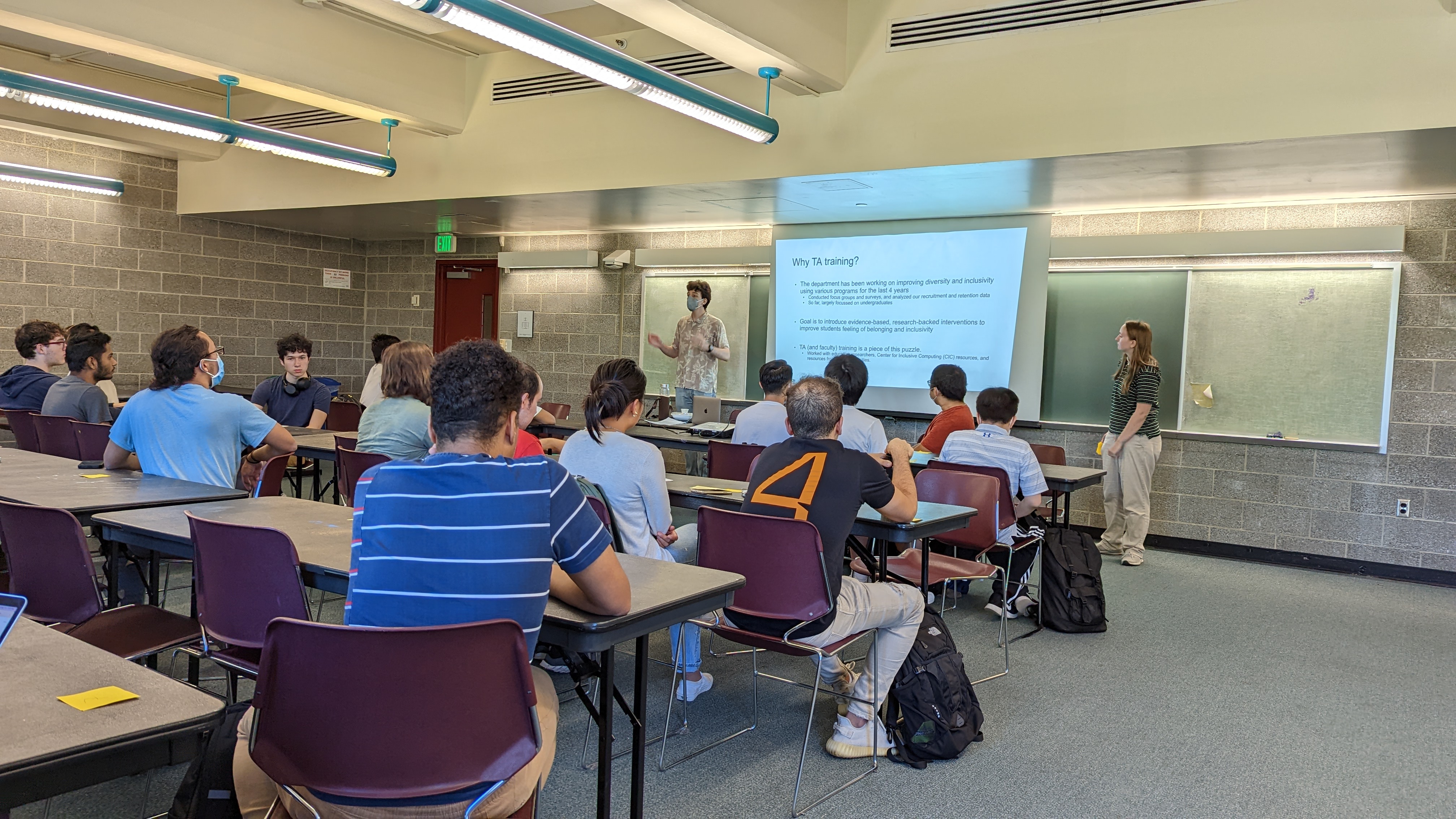 For any student, having an excellent teaching assistant (TA) can be the difference between passing or failing a challenging course. The Department of Computer Science teaches several thousand students every year who rely on their TA’s knowledge and to ensure that students get the help they need, the department employs roughly 300 TAs over the course of an academic year.
For any student, having an excellent teaching assistant (TA) can be the difference between passing or failing a challenging course. The Department of Computer Science teaches several thousand students every year who rely on their TA’s knowledge and to ensure that students get the help they need, the department employs roughly 300 TAs over the course of an academic year.
The challenge for faculty and department leadership is how do we know the TA has the tools they need to be effective?
Developing a Plan
In 2021 that challenge was accepted by department chair Samir Das, and professors Aruna Balasubramanian, C.R. Ramakrishnan, Erez Zadok, Kevin McDonnell, and Paul Fodor. With funding from the Center of Inclusive Computing, Northeastern University, the TA Training Initiative was born. The focus of this initiative is:
- How do we select TAs?
- What training are TAs given?
- How do we evaluate TA performance?
According to Balasubramanian, “It was important to understand the needs of the teaching assistants so the Initiative began by conducting focus groups.” As a result, the focus groups identified that existing training was generic and not interactive; TAs wanted to know how to conduct themselves during certain situations; and pedagogical training was necessary. Also, faculty felt that the TA recruitment for masters and undergrad TAs has been ad hoc.. There was a need for a fair and inclusive central TA recruiting system.
Next, the team identified six graduate students who are TAs themselves and have a strong interest in teaching, education, and mentoring. They would serve as Inclusive Computing Fellows and would drive the TA training effort alongside departmental faculty. The Fellows, Rebecca Drucker, Sanket Gautam, Abe Liete, John Murzaku, Shahreen Salim, and Yunting Yin spent the summer working with faculty deciding on the format of the TA training sessions and material to be covered.
Implementation
In the Fall 2022 semester the department implemented two training tracks consisting of multiple 90-minute sessions; one that focused on pedagogy (October) and one track dedicated to inclusivity (September).
Newly assigned undergraduate and graduate TAs first attended a week of pedagogy training which consisted of 90 minute interactive sessions. Two of the Fellows lead the sessions along with one faculty member.
Using resources from Northeastern University and the University of Illinois – Urbana Champaign, the pedagogy sessions tackled 1) programming questions, 2) non-programming challenges; and 3) plagiarism. Participants were given five scenarios or case studies to analyze and “debug.”
The inclusivity track in October was organized in a similar fashion. It sought to raise awareness rather than being prescriptive. It consisted of a presentation and interactive session. In addition to discussing inclusivity in and out of the classroom, other discussion topics included microaggressions, imposter syndrome, and bystander actions.
In a follow up survey to the inclusivity training, 70% of the respondents said they learned something new. One respondent said, “inclusivity already was, and remains, important to me…I learned some new tips on how to be more inclusive.”
Next Steps
During the month of November, the committee and Fellows are collecting data from a TA survey to determine what worked and what aspects should be considered in future training sessions. Right now, the plan is to conduct TA training once a year at the beginning of the fall semester.
Department chair Das said, “The TA training initiative not only provides students with a “how to” when it comes to responding to questions about the course material, but by practicing a variety of scenarios in class, TAs learn how best to conduct themselves when representing the computer science department.”
